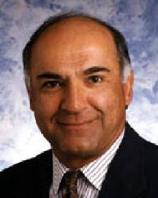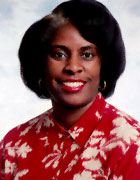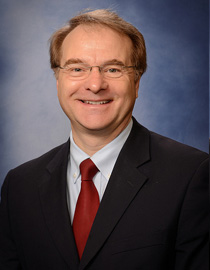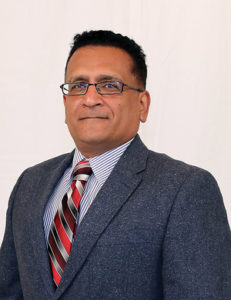Dr. Mehrdad (Mark) Ehsani, Professor
 Dr. Mehrdad (Mark) Ehsani received his Ph.D. in electrical engineering from the University of Wisconsin Madison in 1981. Since 1981, he has been at Texas A&M University where he founded the power electronics program. He is the co-author of more than 300 technical papers, 10 books, an IEEE standards book, and 50 patents. Three of these papers have received prize paper awards in IEEE-IAS. He has also been honored by numerous organizations, including IEEE awards and Texas A&M University as Halliburton Professor and Dresser Industries Professor. His current research work is in power electronics, motor drives, hybrid electric vehicles and systems. He has served on the Ad Com of Power Electronics Society, Executive Council of Industry Applications Society, elected member of the Board of Governors of Vehicular Technology Society, and as chairman and member of several technical committees, in several societies. He is a Fellow of IEEE, a Distinguished Speaker of Industrial Electronics Society, Power Engineering Society, and past Distinguished Lecturer of Industry Application Society and a registered Professional engineer in the state of Texas.
Dr. Mehrdad (Mark) Ehsani received his Ph.D. in electrical engineering from the University of Wisconsin Madison in 1981. Since 1981, he has been at Texas A&M University where he founded the power electronics program. He is the co-author of more than 300 technical papers, 10 books, an IEEE standards book, and 50 patents. Three of these papers have received prize paper awards in IEEE-IAS. He has also been honored by numerous organizations, including IEEE awards and Texas A&M University as Halliburton Professor and Dresser Industries Professor. His current research work is in power electronics, motor drives, hybrid electric vehicles and systems. He has served on the Ad Com of Power Electronics Society, Executive Council of Industry Applications Society, elected member of the Board of Governors of Vehicular Technology Society, and as chairman and member of several technical committees, in several societies. He is a Fellow of IEEE, a Distinguished Speaker of Industrial Electronics Society, Power Engineering Society, and past Distinguished Lecturer of Industry Application Society and a registered Professional engineer in the state of Texas.
Dr. Karen L. Butler-Purry, Professor
 Dr. Karen L. Butler received a B.S. degree from Southern University – Baton Rouge in 1985, a M.S. degree from the University of Texas at Austin in 1987, and a Ph.D. degree from Howard University in 1994, all in electrical engineering. In 1988-1989, Dr. Butler was a Member of Technical Staff at Hughes Aircraft Co. in Culver City, California. She was a recipient of a 1996 Faculty Early Career Award and a 1999 Office of Naval Research Young Investigator Award. She is also a 1998-99 Center for Teaching Excellence Montague Scholar. Her research focuses on the areas of computer and intelligent systems applications in power distribution automation, and modeling and simulation of vehicles and power systems. She is an author of several publications in the areas of power system protection and intelligent systems and has made invited presentations in Nigeria and India. She is the Assistant Director of the Power System Automation Laboratory at Texas A&M University. She is a registered professional engineer in the States of Louisiana, Texas, and Mississippi.
Dr. Karen L. Butler received a B.S. degree from Southern University – Baton Rouge in 1985, a M.S. degree from the University of Texas at Austin in 1987, and a Ph.D. degree from Howard University in 1994, all in electrical engineering. In 1988-1989, Dr. Butler was a Member of Technical Staff at Hughes Aircraft Co. in Culver City, California. She was a recipient of a 1996 Faculty Early Career Award and a 1999 Office of Naval Research Young Investigator Award. She is also a 1998-99 Center for Teaching Excellence Montague Scholar. Her research focuses on the areas of computer and intelligent systems applications in power distribution automation, and modeling and simulation of vehicles and power systems. She is an author of several publications in the areas of power system protection and intelligent systems and has made invited presentations in Nigeria and India. She is the Assistant Director of the Power System Automation Laboratory at Texas A&M University. She is a registered professional engineer in the States of Louisiana, Texas, and Mississippi.
Dr. Mark T. Holtzapple, Professor
 Dr. Holtzapple received the Ph.D. from the University of Pennsylvania in 1981 and the B.S. from Cornell University in 1978, both in chemical engineering. He is now at Texas A&M University in the chemical engineering department. His research interests include biomass conversion for fuel and chemical manufacturing, environment-friendly air conditioning systems, and advanced heat engines. He is the inventor of the MixAlco biomass conversion process and the inventor of the StarRotor engine. Dr. Holtzapple has received many awards, including the Presidential Green Chemistry Challenge Award in 1996, McGraw-Hill Environmental Champion Award in 1997, and the Spirit of Innovation Award for Ingenuity in 2003. He has been honored by Texas A&M University as a Halliburton Professor. Prof. Holtzapple has also created a company to develop and market the StarRotor engine. He is a member of the American Institute of Chemical Engineers, the American Society of Mechanical Engineers, the American Chemical Society and the American Society for Engineering Education.
Dr. Holtzapple received the Ph.D. from the University of Pennsylvania in 1981 and the B.S. from Cornell University in 1978, both in chemical engineering. He is now at Texas A&M University in the chemical engineering department. His research interests include biomass conversion for fuel and chemical manufacturing, environment-friendly air conditioning systems, and advanced heat engines. He is the inventor of the MixAlco biomass conversion process and the inventor of the StarRotor engine. Dr. Holtzapple has received many awards, including the Presidential Green Chemistry Challenge Award in 1996, McGraw-Hill Environmental Champion Award in 1997, and the Spirit of Innovation Award for Ingenuity in 2003. He has been honored by Texas A&M University as a Halliburton Professor. Prof. Holtzapple has also created a company to develop and market the StarRotor engine. He is a member of the American Institute of Chemical Engineers, the American Society of Mechanical Engineers, the American Chemical Society and the American Society for Engineering Education.
Dr. Reza Langari, Professor
 Dr. Reza Langari received his Ph.D., M.S. and B.S. degrees in mechanical engineering from the University of California at Berkeley in 1991, 1983 and 1980 respectively. He is an associate professor in the Department of Mechanical Engineering at Texas A&M University and Associate Director of the Center for Fuzzy Logic, Robotics and Intelligent Systems Research. Dr Langari is the co-author of the textbook Fuzzy Logic: Intelligence, Control and Information, and co-editor of Fuzzy Control: Synthesis and Analysis. He serves as associate editor of IEEE Transactions on Fuzzy Systems as well as ASME Journal of Dynamic Systems, Measurement and Control. His current research interests include dynamic systems and control, intelligent control systems, vehicle dynamics and control. real-time control systems and mechatronics.
Dr. Reza Langari received his Ph.D., M.S. and B.S. degrees in mechanical engineering from the University of California at Berkeley in 1991, 1983 and 1980 respectively. He is an associate professor in the Department of Mechanical Engineering at Texas A&M University and Associate Director of the Center for Fuzzy Logic, Robotics and Intelligent Systems Research. Dr Langari is the co-author of the textbook Fuzzy Logic: Intelligence, Control and Information, and co-editor of Fuzzy Control: Synthesis and Analysis. He serves as associate editor of IEEE Transactions on Fuzzy Systems as well as ASME Journal of Dynamic Systems, Measurement and Control. His current research interests include dynamic systems and control, intelligent control systems, vehicle dynamics and control. real-time control systems and mechatronics.
Dr. Thomas Lalk, Associate Professor (Emeritus)
Dr. Lalk received his Ph.D., M.S. and B.S. from the University of Wisconsin at Madison in 1972, 1967, 1964 respectively. He joined Texas A&M University in 1976 after having worked as a research engineer for McDonnell-Douglas and DuPont, and as an Assistant Professor at The Cooper Union, NYC. During the early portion of his academic career he was primarily involved with teaching courses in thermal sciences (thermodynamics-undergraduate and graduate, heat transfer, internal combustion engines, graduate combustion, fluid dynamics, instrumentation and measurement, and experimentation). Since 1987 he has become extensively involved with the senior capstone design courses teaching the lecture and design studios, and contributing to the development of the system engineering approach to teaching design. As a Ford Fellow he serves on a Committee to integrate design throughout the engineering curriculum. He has advised numerous graduate students conducting research in energy conversion systems (combustion, engines, hybrid vehicles, fuel cells, design and Alkali Metal Thermal to Electric Conversion). He has done considerable consulting with industry, government and law firms in the areas of engineering design, fire research, combustion, internal combustion engines, heat transfer and fluid mechanics, and automotive engineering. At the College and University level he has served on numerous committees and served six years on the faculty senate.
Dr. John M. Miller, Adjunct Professor
Dr. John M. Miller received the B.S. from the University of Arkansas, the M.S.E.E. degree from Southern Methodist University, TX, and the Ph.D. from Michigan State University in 1976, 1979 and 1983 respectively, all in electrical engineering. He was a member of the technical staff at Texas Instruments from 1976 to 1980 and joined Ford Motor Company Research Laboratory in 1983 to work on electric vehicle programs and vehicle electrical systems and simulation. He was technical project leader for 42V Integrated Starter Alternator product development program and later technical leader of hybrid technology governance at Ford before his retirement. He is a charter member of the MIT/Industry Consortium on Advanced Automotive Electrical and Electronic Systems and Components. He became an Adjunct Professor of Electrical and Computer Engineering at Michigan State University in 1998 and an Adjunct Professor of Electrical and Computer Engineering at Texas A&M University in 2002. He is the holder of 44 US patents, has authored or co-authored 106 publications and 3 books. Dr Miller retired from Ford Motor Co. in August of 2002 to start up a private enterprise consulting in AC drives, alternative energy, energy storage systems and propulsion systems for transportation, J-N-J Miller design services, P.L.C. He is a member of SAE, and a Fellow of IEEE. He is the recipient of the Henry Ford Technology Award for the development of the starter-alternator system for Hybrid Electric Vehicles and is recipient of the Ford Directors Team Achievement Award.
Dr. Yimin Gao, Research Associate
Dr. Yimin Gao received his B.S., M.S., and Ph.D. degrees in mechanical engineering in 1982, 1986 and 1991 respectively, all from Jilin University of Technology, PR of China. He is a Research Associate and specialized in the development, design and manufacturing of automobiles. From 1991 to 1995, he was an associate professor and automotive design engineer in the Automotive Engineering College of Jilin University of Technology. He joined the Advanced Vehicle Systems Research Program at Texas A&M University in 1995 as a visiting professor. Since then, he has been working in this program as a research associate on the research and development of electric and hybrid electric vehicles. His research interests include the fundamentals, architecture, control, modeling, and systematic design of electric and hybrid electric vehicles.